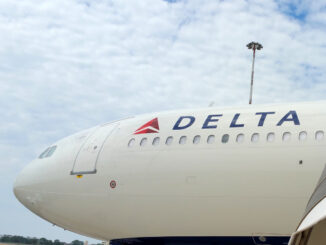ATLANTA — Bad news travelers: Airlines’ bag fees are on the rise again. This time, they’re targeting carry-on bags.
Starting Nov. 6, low-cost carrier Spirit Airlines will charge customers at the boarding gate $100 per carry-on or checked bag. Spirit, which has a knack for generating publicity both positive and negative, doesn’t count a personal item that can be stowed under seats in front of passengers as a carry on.
In a release, Miramar, Florida -based Spirit said the “$100 carry-on bag fee is intentionally set high to deter costly delay-causing gate activity.”
Still, there is no such thing as a free bag on Spirit. However, the airline offers a cheaper alternative of $30 for a checked bag and $35 for a carry-on by paying online in advance.
“Our goal is for no customer ever to pay the $100 fee,” Spirit’s Chief Operating Officer Tony Lefebvre said in a recent news release. “Spirit offers our customers multiple opportunities to avoid this unnecessary fee and save money. By planning ahead and paying for bags before getting to the boarding gate, our customers are saving time at the airport and speeding up the boarding process. When our customers choose these time-saving, self-service options, our costs go down, and we can pass those savings along to our customers.”
Spirit isn’t alone. Las Vegas-based Allegiant Airlines and Budapest-based Wizz Air, both low-cost carriers, also charge travelers who carry on bags. While Wizz charges roughly $13 for a bag in the overhead bin, Allegiant charges between $10 and $30 depending on the flight, according to ABC News.
On its website, Wizz said the new fee, which started Wednesday, is “to encourage passengers to bring smaller baggage onboard and make the boarding process smoother and faster.”
“With the vast majority of passengers willing to bring smaller bags on board we are now the first European carrier to eliminate a chronic problem in the airline industry faced by all airlines, but, even more important for consumers, Wizz Air is again pioneering in delivering lower fares by passing on the cost savings in the form of discounted fares for all passengers,” Michael Powell, CFO of Wizz Air, said in a news release earlier this year. “We leave it for high fare airlines to tackle their costs by raising fares and levying unavoidable fuel surcharges while Wizz Air passengers will continue to pay only for the services they use.”
Baggage fees have caught the ire of Washington. In 2010, U.S. Sen. Jim Webb, D-Va., said he introduced the “Airline Baggage Transparency and Accountability Act” in response to passengers’ concerns about hidden fees and mishandled baggage.
The legislation went nowhere, and baggage fees overall continue to mean big business for airlines. In the first two quarters of 2012, the nation’s airlines racked up more than $1.7 billion in baggage fees, with Atlanta-based Delta Air Lines topping the list.
In its quarterly earnings announced Wednesday, Allegiant, for example, reported a 22 percent increase ancillary air-related charges. Revenue from scheduled service, however, decreased 3.1 percent.
Still, the feds are cracking down, imposing a rule in January that requires airlines and ticket agents to inform consumers that they may have to pay baggage fees. Earlier this month, the U.S. Department of Transportation (DOT) fined Australian carrier Qantas $100,000 for violating the rule.




